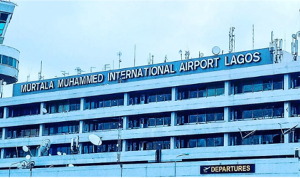The money transfer business has been identified as a lucrative venture which banks can take advantage of to enhance their performance.
The business has been rated widely as the largest foreign exchange earner for the country, after the traditional exports and tourism. Notable among transfer services are Western Union, MoneyGram, Vigo, Unity Link and Uniteller.
The Agricultural Development Bank (ADB) and its partners, for instance, generated $160.8 million last year alone from their partnership with the Western Union Money Transfer. Since 1994, ADB Western Union had transferred over $600 million in funds.
Inward remittance from January to September this year alone, according to the Bank of Ghana, increased to $1.5 billion from the previous $1.3 billion. The business is also known to have revived the Ghanaian economy in the 1980s when remittances from Ghanaians abroad helped the economy to overcome the crippling problems of the time.
In spite of the vast potential of the industry, operators contend that policy makers and regulators had shown little commitment to improving the remittance business under the pretext that it is being used for immediate consumption rather than for direct investment.
As a result of this slack, many informal money transfer outlets have sprung up, mainly composed of individuals with relatives abroad who transform themselves into remittance agents. However, according to a Special Assistant to the Governor of the Bank of Ghana (BoG), Dr Mahamadu Bawumia, the size and scope of the business make it difficult to evaluate its economic impact.
Speaking on “Formal and Informal Value Transfer Systems: Law Enforement and Regulatory Challenges; the Ghanaian Experience” at a one-day seminar on inward remittances in Accra last Friday, Dr Bawumia called for policies that would encourage the use of more formal channels in the area of money transfer.
Info Bank Investment and Research Ltd, a UK-based management consultancy firm, in conjunction with E-Money Remittance Company and Money Systems West Africa organised the seminar.
It was on the theme: “The Ghanaian Financial System and Inward Remittances: The Role of the Banks, Individuals, Corporate Bodies and Remittance Companies”. Topics discussed included Inherent Problems of Downstream Money Transfer Companies/Banks and Embracing Technology in Revolutionising the Global Remittance Industry: The E-Systems Model”.
Dr Bawumia said, however, that to make the shift happen, “unburdensome regulations, improved bank performance and cost effectiveness, improved macroeconomic stability as well as a more conducive business environment in the country are needed”.
He argued that overly harsh central bank interference in the remittance process could lead migrants to send a higher share of the remittance through informal channels. “Incentives rather than mandatory regulations should be used to increase remittance flows,” Dr Bawumia stated.
Closely related to this, he said, was the improvement of infrastructure at the formal channels to compete out the informal channels which many people prefer for their speed and efficiency.
He gave the assurance that the BoG would continue to support money transfer operations in the country while making sure that it did not compromise on its supervisory regulations.
Business News of Tuesday, 2 December 2003
Source: Samuel Doe












